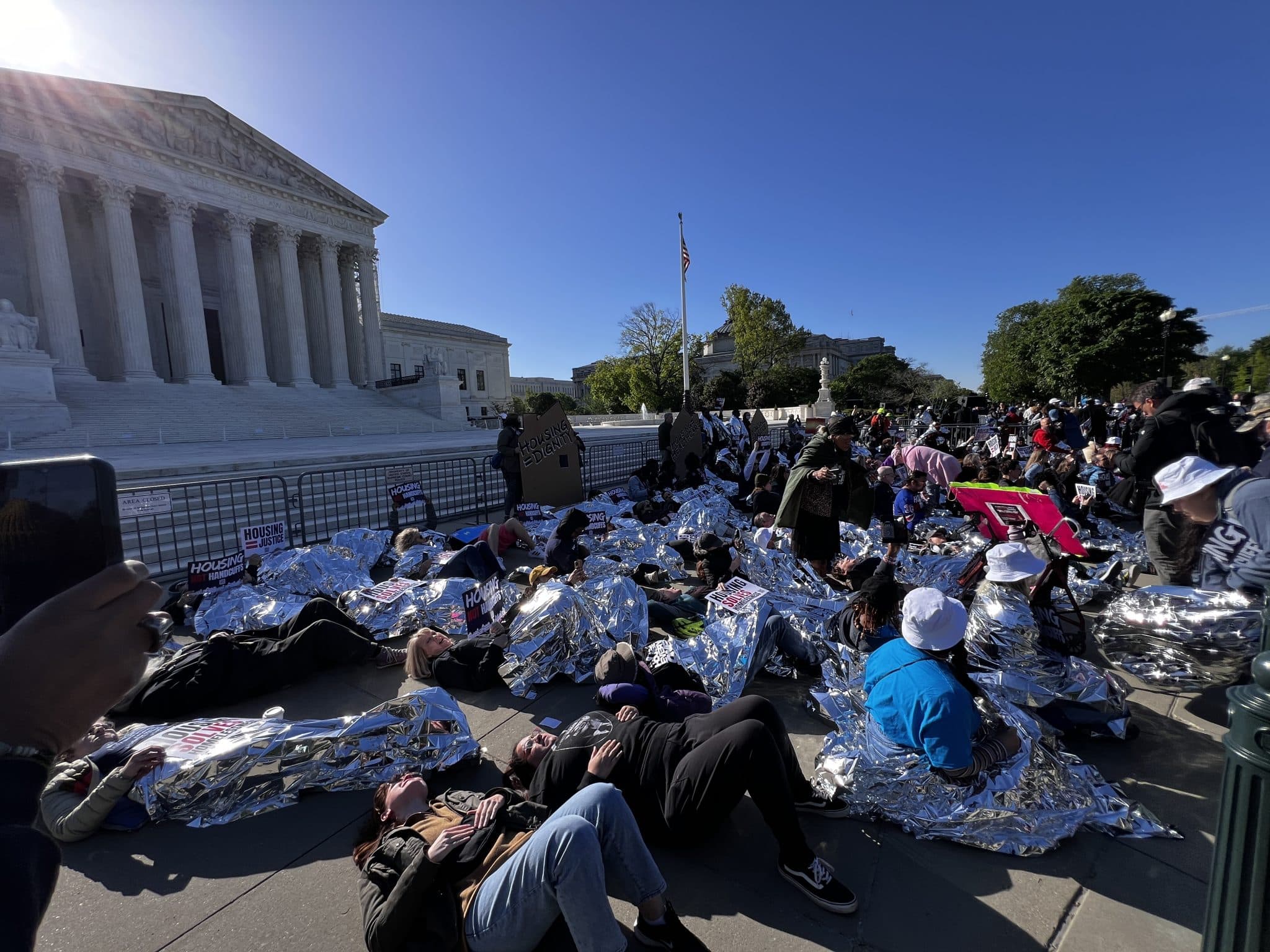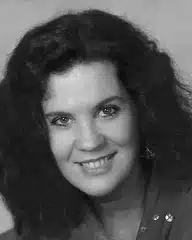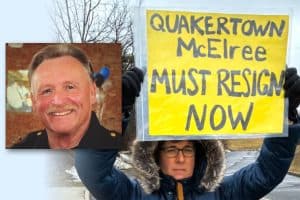Earlier this week, the United State Supreme Court heard arguments in the case of Grants Pass v Johnson. Grants Pass, a small city in Oregon with fewer than 40,000 residents has all but built its reputation on removing people experiencing homelessness, first to other locales and more recently to jail. Years ago, Grants Pass supplied bus tickets for those without addresses. According to testimony Monday, often the municipalities the individuals were removed to, just sent them back.
Grants Pass leaders then passed an ordinance fining residents up to $295 per offense for public sleeping. During Monday’s hearing, Justice Sonia Sotomayer asked, “If a homeless person had that kind of money, wouldn’t they use a hotel?” Sotomayer inferred that persons experiencing homelessness clearly were set up for failure when they could not afford the fines.
Under the Grants Pass ordinance, criminal charges are brought after three unpaid fines. Consequently, several of the homeless residents of Grants Pass fought back. Gloria Johnson, a woman fined for sleeping in her car, is the lead plaintiff in the case.
When the US Court of Appeals for the Ninth Circuit agreed with Johnson and her co-plaintiffs claims that punishing people for public sleeping – when they had nowhere else to go – was cruel and unusual punishment, Grants Pass filed a petition to the highest court in the land. According to a decades old analysis by the Washington Post, the cost of bringing a case to successful resolution before the U.S. Supreme Court is, “somewhere north of $1,144,602.64.” Despite the expense, rather than build a new shelter for the unhoused, or provide more affordable housing, Grants Pass asked the justices for a constitutional ruling.
At the core of the constitutional argument is whether homelessness is a status or a condition. Back in 1962, the Supreme Court ruled in Robinson v. California, that a person could not be punished for, “a status rather than an act.” For example, while drug use may be illegal, a person cannot be arrested simply for being an addict.
Tammy Rojas, Tri-Chair of Pennsylvania Poor People’s Campaign, having suffered homelessness herself, believes homelessness is a status. “I just got done being homeless and could be again when this job ends. It’s not something I’m choosing. Anybody could wind up homeless at any time.”
READ: Homelessness in Bucks County: Right Under Our Noses
Rojas says the way folks experiencing homelessness are treated proves it’s a status, “People in power and a lot of the media talk about us unhoused folks like we aren’t even human. Like we are a whole different species. It’s where the vigilantism comes from… they attack because people are homeless.”
On Monday, early in the hearing, Justice Sonia Sotomayor confronted the attorney for Grants Pass, Theane Evangelis, on the town’s apparent practice of targeting people based on status alone. “[You’re] only stopping from sleeping in public for purpose of homelessness, and not the behavior of possessing a blanket, pillow or sleeping – as the ordinance entails.” When Evangelis protested, Sotomayer continued, “The police officers testified… if a stargazer wants to take a blanket or a sleeping bag out at night to watch the stars and falls asleep, you don’t arrest them.” Sotomayer said, only those “who don’t have a home” had been arrested.
Justice Ketanji Brown Jackson tagged in with a reminder that sleeping is a necessity. “You say it pertains to conduct and not status. Everyone must sleep. You only punish those without options. Sleeping outside homeless rather sleeping outside period. The action is sleeping and sleeping is not a criminal act.”
READ: The Way We Treat Our Unhoused Neighbors Is Criminal
Justice Elena Kagan challenged Evangelis on the ordinance citing a pillow or blanket as proof of intention to sleep outside, stating the brutal reality that if a person living outside succumbs to the need to sleep but doesn’t prepare for it, the cold Oregon weathers will eliminate the question, “Get hypothermia and the constitutional issue goes away.” The implication – that freezing to death solves the problem.
More pointedly, Sotomayor confronted Evangelis directly, asking how else people experiencing homelessness might cope, are they, “supposed to kill themselves?”
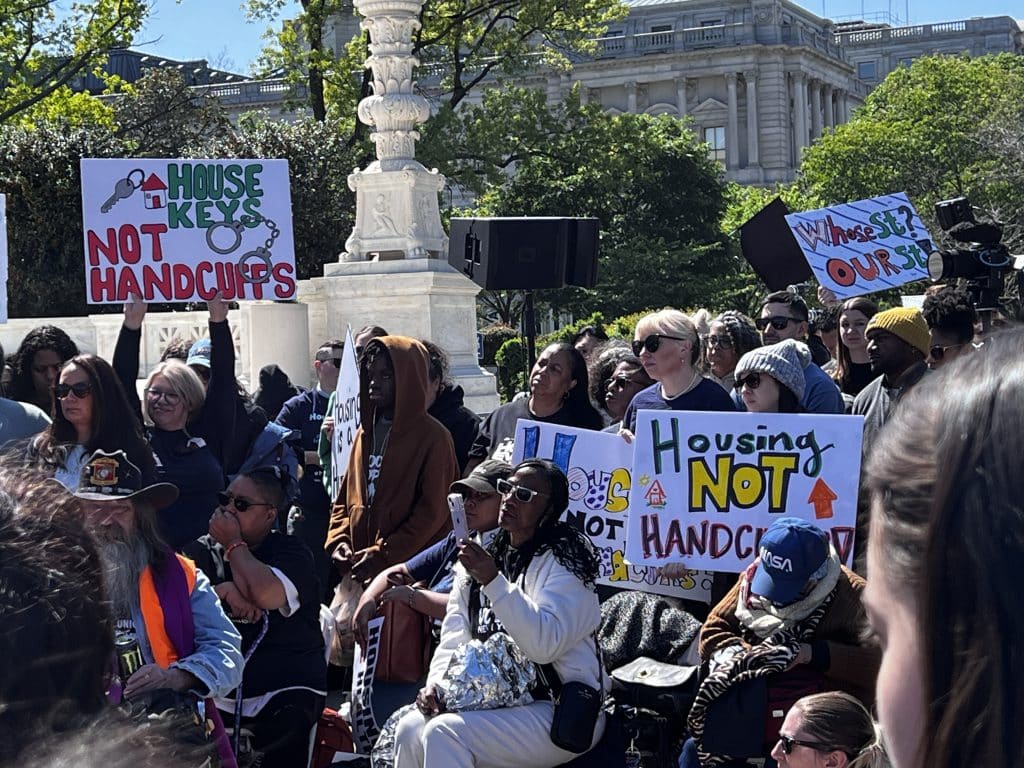
As homeless advocates and agency providers across the nation await what could be the first declaration of human rights – that homelessness is a status and not a behavior – for persons experiencing homelessness to come from the Supreme Court, they also fear what might happen if the court codifies criminalization.
Bucks County is no different.
“Especially in Bucks County,” remarked Murielle Kelly, Director of Housing Services; Family Service Association of Bucks County, “there’ve always been talks about where we’re gonna have folks go if we don’t have enough affordable housing.”
Family Service Association has a medical street outreach, a day center, and an overnight shelter with 85 beds. Kelly says it’s not enough, “At any given time we have 100, 150, 200 people on a waiting list for shelter.”
The solution to the problem, Kelly explains, is more housing. She doesn’t want to get bogged down with what went on in DC this week, “We need to continue to work on the problem. Let’s not focus on the fear of Grants Pass. Let’s focus on building more affordable housing.”
Kelly may be correct. As yet, homelessness is not illegal in Bucks County. Still, were the Supreme Court to find that municipalities could make sleeping outside illegal, and communities were to follow Grants Pass playbook, hundreds of Bucks County residents might find themselves breaking the law.
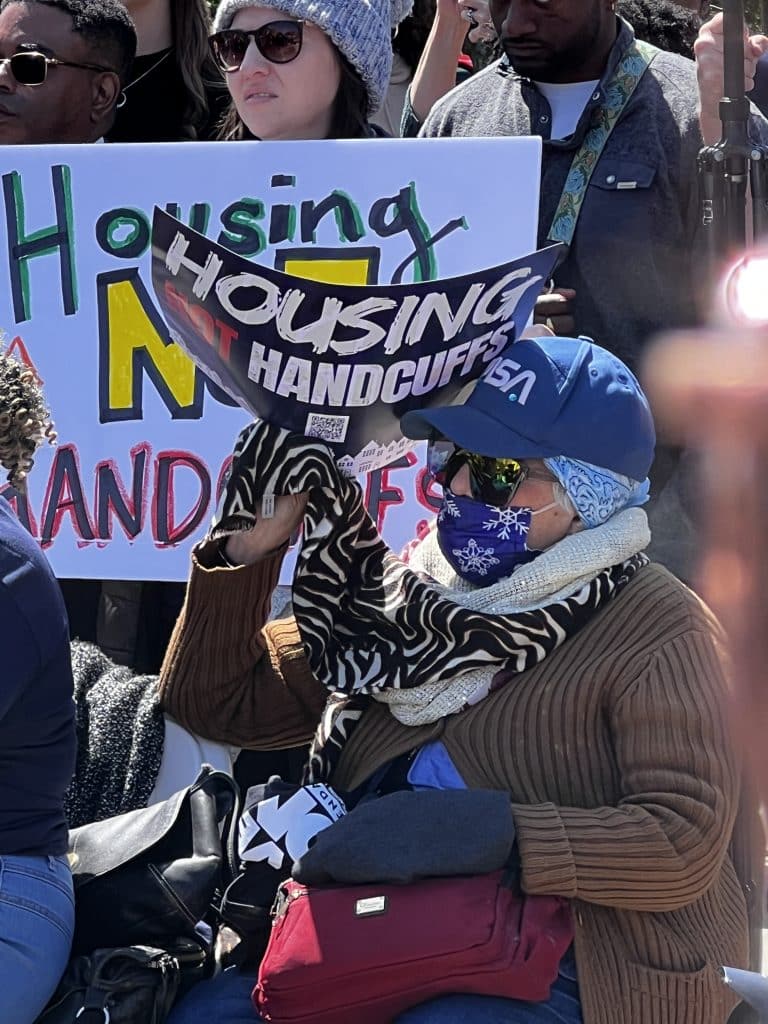
Nicole Buckley-Mormello, Executive Director of the Bucks County’s Coalition to Shelter and Support the Homeless(CSSH), oversees the Code Blue shelter that takes people off the streets overnight during the coldest nights of the year – if they have enough volunteer staff to run the shelter.
Buckley-Mormello does not see criminality. She sees an ever-expanding need for assistance. “We saw double the amount of folks in our shelters this year, and an uptick in female guests.”
And if those people experiencing homelessness were to be fined for sleeping outside? Buckley-Mormello knows it would eat into valuable resources she uses to shelter the very people who would be punished. “As part of our outreach, we consider funding guests as it pertains to their specific hardship. Assisting a guest to pay fines; it’s a case-by-case approach. We have an internal committee that dives deeper into these requests.”
READ: We Need Housing, Not Handcuffs for People Experiencing Homelessness
Additionally, depending on how SCOTUS rules, Bucks County’s service providers could be impacted by neighboring jurisdictions copying Grants Pass.
Kelsi Corkran, the attorney for Johnson et al. painstakingly explained that any place a homeless person is with a blanket in Grants Pass, they are in danger of citation. She claims the ordinance effectively outlaws a person being homeless while “breathing, sleeping or blinking” forcing them to leave the area, if possible. Just like the bus tickets, the ordinance attempts to turn the city’s homeless problem into someone else’s problem.
Corkran cautioned that a decision supporting Grants Pass would allow for less compassionate municipalities to pass ordinances that would force additional homelessness into nearby communities. A concept Justice Samuel Alito seemed to embrace, “Does it matter if a person was born there?”
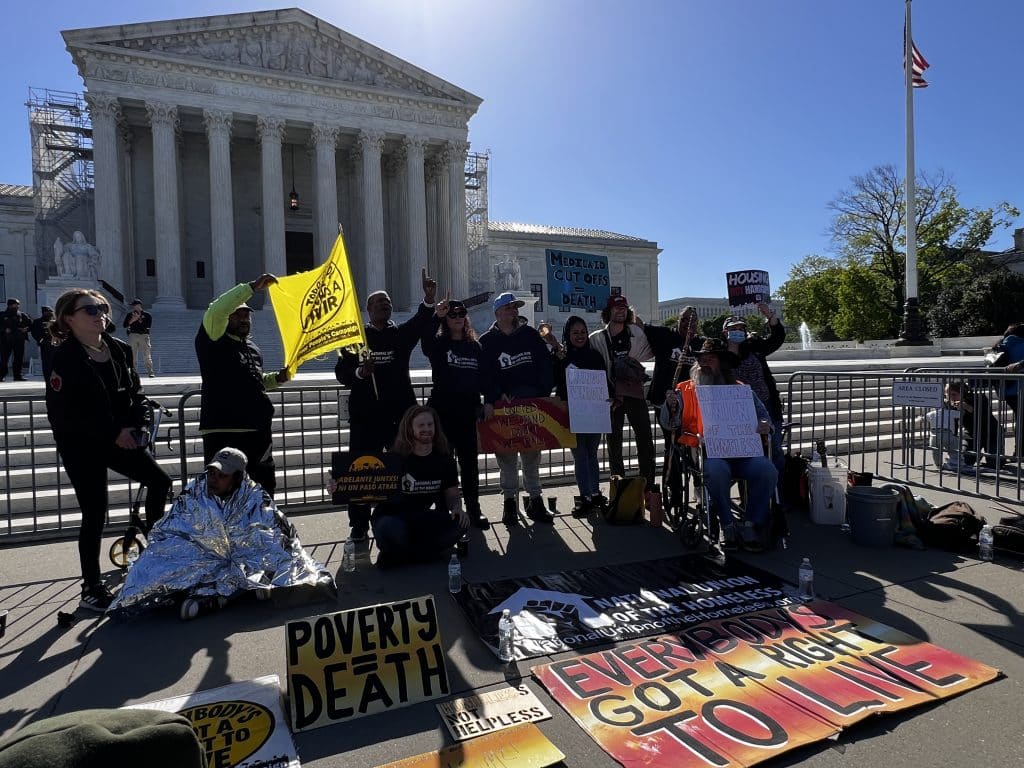
Alito added his supposition that it’s easy to just move on, citing that when he lived in New Jersey, “I could go on a 20-minute walk and be in three different municipalities.” The justice did not speculate on what it might be like to walk from town to town with all of his belongings in tow, as people living in homelessness must.
Passing ordinances to shuffle people out of town has consequences to neighboring towns. Rojas admits it’s possible communities or counties neighboring Bucks County (or some other region) might pass Grants Pass style ordinances, forcing their unhoused population to relocate to kindhearted municipalities – causing an eventual political alliance between more generous communities and those in need. “We would have to push at the state level to get protections because having to tackle every locality, one at a time would be astronomical. We would have to look to Pennsylvania to pass protections,” to either restrict localities from passing anti-sleeping ordinances, or provide for remedies when they are passed.
READ: Proposed Law Aims to Keep Pennsylvania’s Homeless Students in School
Speaking on behalf of the poor and unhoused, Rojas added, “We will have to look for bills that say we will not criminalize homelessness in this state – similar to what states are doing after Roe was struck down,” Rojas said. “We’ll have to reach out to state officials for help and protection.”
Otherwise, “My fear, when I think about the future of the poorest of the poor, is it’s prison or death.”
